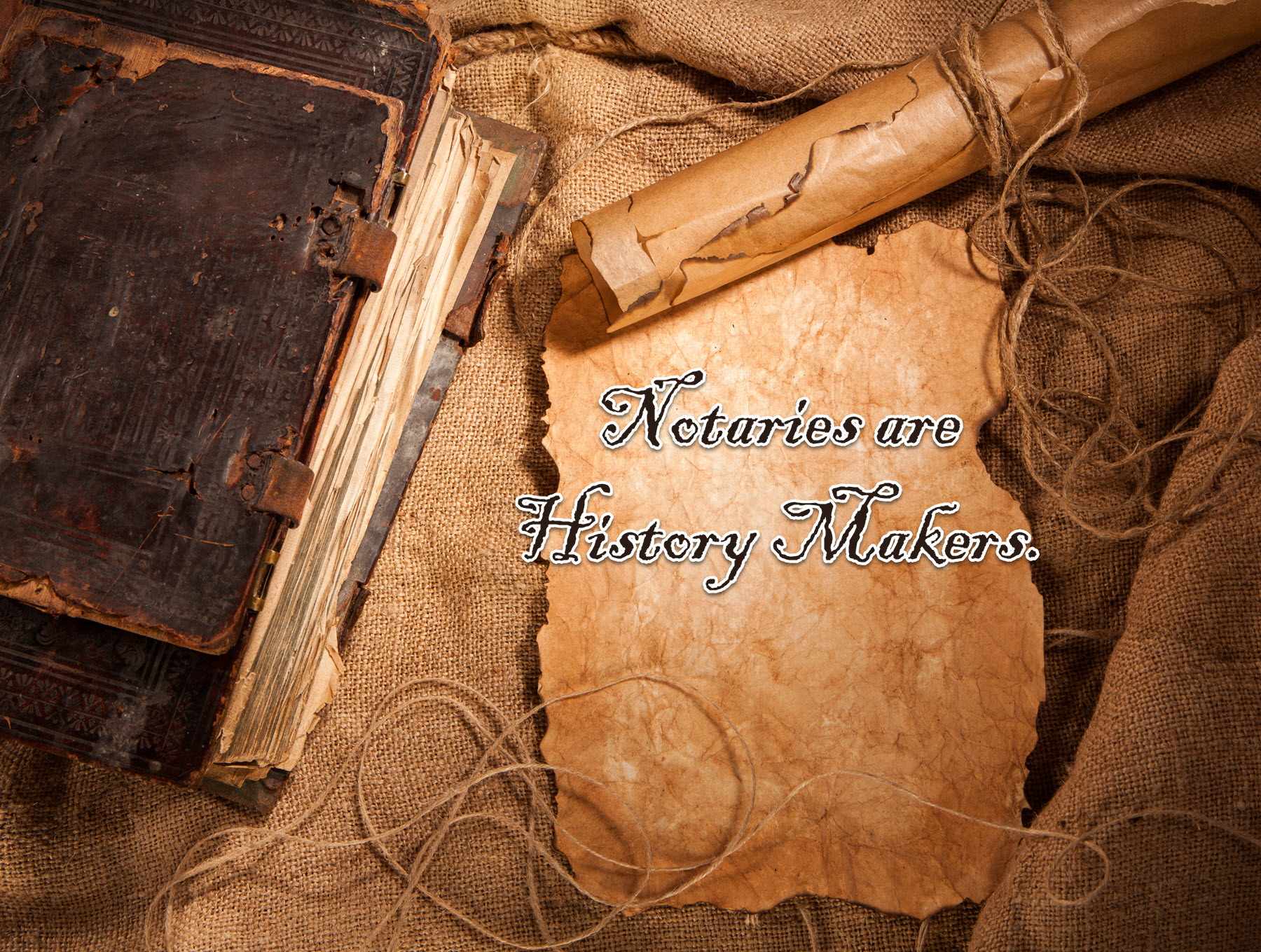A notary’s primary function is to act as a witness to business transactions and execution of person a documents.
Notarial acts never die; they live on long past the notary to provide proof of important historical facts for those who must depend upon them.
Imagine if a notarial act expired after a certain number of years. Without a valid notarization, most deeds and mortgages can be disputed. That kind of world would be chaotic without the historical actions memorialized for eternity by the notary’s seal and signature! That’s why a notary’s repetitive ministerial tasks are simple, yet critical, tick marks on the world’s timeline.
The notary’s seal and signature on a deed one hundred years ago won’t expire and can’t be undone easily to invalidate the transaction. [1] The seal and signature of the notary mean something. They establish that a disinterested third-party (the notary) witnessed a certain property owner’s execution (or acknowledgment of signature) on the document. No one can dispute it today–the notary’s seal and signature indicates the notary was a credible witness to the signing of the deed. It cannot be said at this late date that the signer of the document was a fraud and, therefore, all deeds from that one forward are in question.
That’s powerful!
However, the power of confirming a change in ownership can also be devastating. Consider cases of fraud where notaries do not do their jobs properly and allow false actors to sign a document. If the fraudulent activities aren’t detected, the notarial seal lives on and sloppy notary work has misrouted the future of the rightful property owners.
The public has always trusted notaries to be truthful and dedicated public servants who do their jobs earnestly and correctly.
Every Texas notary has a specifically crafted official seal of office with certain elements as required by law. A notary’s seal and signature when applied to a notarial certificate signifies to the public:
- The notary has no personal interest in the document involved; he or she acted as an objective third-party witness.
- The attached document was complete to the best of the notary’s knowledge when he or she performed the notarial act.
- The person who signed the attached document has been identified by the notary as the person who is stated in the document by using one of three legally established methods. (The notary’s seal doesn’t guarantee the person’s identity, but it provides the assurance that the notary believed he or she had satisfactory evidence of the person’s identity.)
- The notary has witnessed the person signing the document attached to his or her notarial certificate, or in some cases, the notary simply asked the person to solemnly acknowledge he or she personally signed the document.
- If the document is a sworn statement, the notary watched the person sign the document.
- If the document is a deed or other acknowledged document, the notary doesn’t have to see the person signing the document, but he or she ensures the person who signs the document has acknowledged the signature on the document to his or hers.
- The notary did his or her best to determine if the person signing the attached document is acting independently and not because of undue influence or coercion.
- The notary has conducted a verbal ceremony regarding the document based on the act performed and memorialized in the notary’s certificate. (When there is no verbal ceremony, the notarial act is incomplete.)
- If the document is a sworn statement, the notary’s verbal ceremony should be about the truth of the statements. For instance, “Do you swear or affirm the document you are signing is truthful to the best of your knowledge?”
- If the document is a deed or other acknowledged document, the verbal ceremony should be similar to, “Do you acknowledge that you are placing your signature on the document of your own free will and with genuine intent regarding the contents of the document?”
- During the performance of the notarial act, the presiding notary has made a record in his or her official notary journal regarding the document, the person signing, and the type of notarial act performed.
That’s a lot of responsibility!
When all of these actions are taken by the notary, the notarial act is becomes an indisputable piece of history. (by Brenda Stone)
[1] It’s possible for any land transaction to be challenged, but there must be evidence of fraud which would be difficult 100 years post-execution of documents. Laws vary on this and the writer of this piece isn’t a lawyer.


Leave a Reply